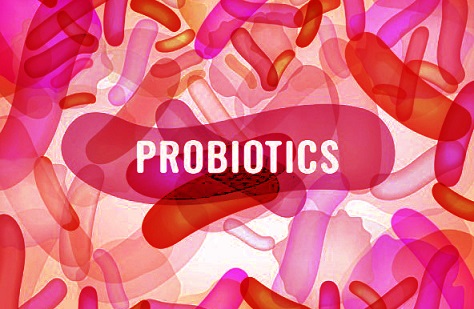Nikhil Prasad Fact checked by:Thailand Medical News Team Nov 30, 2024 4 months, 2 weeks, 15 hours, 8 minutes ago
Medical News: A groundbreaking study conducted by researchers from the Medical University of Graz, the Center for Biomarker Research in Medicine (Austria), and Vilnius University (Lithuania) investigated the effects of probiotics on gastrointestinal symptoms caused by mild COVID-19. The research highlighted significant findings about the gut microbiome's role during the infection and the potential benefits of probiotics as a therapeutic measure.
 Probiotics as a Potential Ally in Managing COVID-19 Gastrointestinal Symptoms
Probiotics as a Potential Ally in Managing COVID-19 Gastrointestinal Symptoms
This
Medical News report explores the study's details, its findings, and the implications for individuals experiencing mild COVID-19. By examining the gut microbiome's changes and the effects of a multispecies probiotic, the researchers aimed to understand how probiotics could aid recovery.
Study Details and Methods
The study was a randomized, double-blind, placebo-controlled trial involving 30 patients with mild COVID-19 in home quarantine. Patients were given either a multispecies probiotic or a placebo for 30 days, with gastrointestinal and respiratory symptoms monitored through telemedicine. Stool samples were analyzed to evaluate changes in microbiome composition and stool metabolomics. Twenty-four healthy volunteers served as controls for comparison.
Probiotic intervention involved a mix of beneficial bacteria, including Enterococcus faecium, aimed at improving gut health and managing gastrointestinal symptoms. Researchers relied on patient-reported outcomes and scientific measurements to assess the probiotic's effectiveness.
Key Findings on Gut Microbiome Alterations
The study revealed that even mild COVID-19 infections significantly alter the gut microbiome. Patients experienced reduced microbial diversity and changes in specific bacterial populations:
-Increase in Bacteroidetes: These bacteria, known for producing short-chain fatty acids beneficial for health, were more prevalent in infected patients.
-Decrease in Christensenellaceae and Ruminococcaceae: These reductions are often linked to metabolic and gastrointestinal disorders, indicating potential imbalances caused by the infection.
-Alterations in the fecal metabolome, which includes the compounds produced by gut bacteria, were also observed. Patients showed increased levels of formic acid and sarcosine and reduced levels of tyrosine and 3,4-dihydroxybenzeneacetic acid, potentially affecting immune response and overall health.
Probiotic Intervention Effects
While the probiotic significantly modulated the microbiome's composition, its impact on symptoms and recovery was less pronounced:
-Microbiome Modulation: The probiotic introduced beneficial strains like Enterococcus faecium into the gut, with measurable increases in its
population by the study's end. This strain has documented antiviral properties and potential benefits for gut health.
-Symptoms and Quality of Life: Gastrointestinal symptoms and related quality-of-life measures improved significantly over time, regardless of whether patients received the probiotic or placebo.
Implications of the Findings
The study sheds light on the relationship between gut health and COVID-19, emphasizing the gut microbiome's potential role in infection outcomes. The findings suggest that while probiotics can alter the microbiome favorably, their therapeutic effects may depend on factors like baseline gut diversity and infection severity.
Challenges and Considerations
Conducting the study remotely posed logistical challenges, including patient recruitment during pandemic restrictions and ensuring reliable sample collection. The use of stabilizing agents for stool samples, while practical for safety, hindered some analyses, such as measuring fecal calprotectin levels.
Despite these limitations, the study highlights the feasibility of remote trials and offers valuable insights into the role of gut health in managing COVID-19.
Conclusion
This research underscores the gut microbiome's vulnerability during COVID-19 and the potential of probiotics to support recovery. While the intervention did not drastically change symptom duration, it demonstrated the ability to enhance gut health and introduce beneficial bacterial strains like Enterococcus faecium.
The findings pave the way for further studies, particularly in exploring probiotics' role in more severe infections or as preventive measures. With the gut microbiome emerging as a key player in health and disease, strategies to modulate it could become integral to managing infectious diseases like COVID-19.
The study findings were published in the peer-reviewed journal: Nutrients.
https://www.mdpi.com/2072-6643/16/22/3970
For the latest COVID-19 News, keep on logging to Thailand
Medical News.
Read Also:
https://www.thailandmedical.news/news/brazilian-study-review-finds-that-probiotic-lactobacilli-has-therapeutic-potential-in-treating-covid-19
https://www.thailandmedical.news/news/covid-19-news-indonesian-researchers-uncover-biosurfactant-potential-and-antiviral-activity-of-multistrain-probiotics-against-sars-cov-2
https://www.thailandmedical.news/news/covid-19-news-probiotics-such-as-limosilactobacillus-fermentum-and-lacticaseibacillus-rhamnosus-can-help-against-sars-cov-2
https://www.thailandmedical.news/news/covid-19-news-spanish-study-shows-that-gut-microbiome-composition-and-function-play-a-role-in-covid-19-progression-probiotics-help
https://www.thailandmedical.news/news/u-s-clinical-trial-shows-that-probiotics-like-lactobacillus-rhamnosus-gg-can-reduce-covid-19-symptoms-when-taken-as-a-post-exposure-prophylaxis
https://www.thailandmedical.news/news/breaking-italian-study-shows-that-oral-probiotics-comprising-of-lactic-acid-bacteria-and-bifidobacteria-decreases-risk-of-respiratory-failure-in-covid
https://www.thailandmedical.news/news/covid-19-treatments-probiotics-could-be-used-as-adjuvants-to-treat-covid-19-
https://www.thailandmedical.news/news/emerging-studies-showing-role-of-gut-microbiome-in-covid-19-and-benefits-of-probiotics-for-treatments-and-as-prophylactics-
https://www.thailandmedical.news/news/gut-microbiota-hong-kong-researchers-say-that-certain-probiotics-could-enhance-the-immune-system-to-fight-against-covid-19
https://www.thailandmedical.news/news/south-korean-study-finds-that-lacticaseibacillus-rhamnosus-hdb1258-boosts-immunity-and-improves-gut-health
https://www.thailandmedical.news/news/indian-researchers-developing-new-edible-probiotic-yoghurt-based-vaccine-for-covid-19
https://www.thailandmedical.news/news/probiotic-lactobacillus-acidophilus-protects-the-intestines-from-inflammation
https://www.thailandmedical.news/news/post-covid-19-individuals-advised-to-take-probiotics-as-study-shows-sars-cov-2-induced-gut-microbiome-dysbiosis-increases-risk-for-colorectal-cancer
